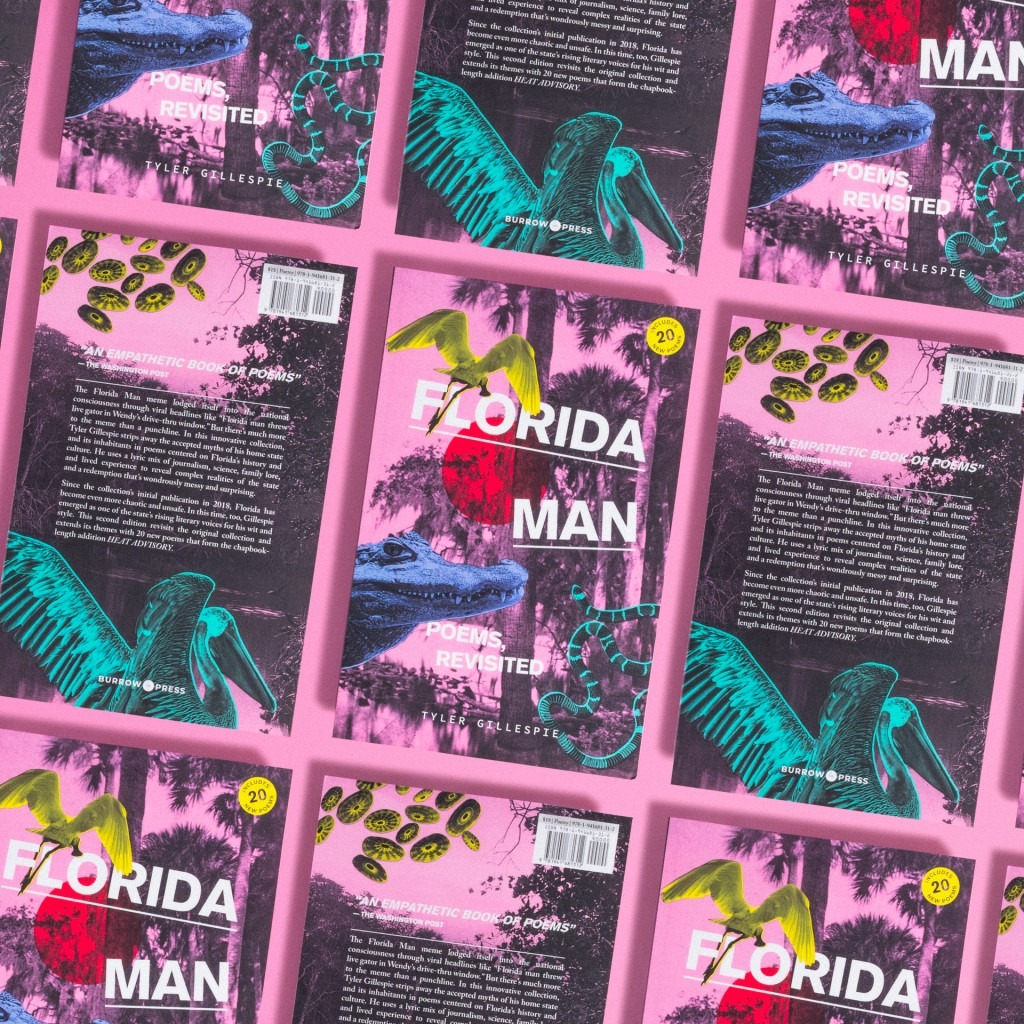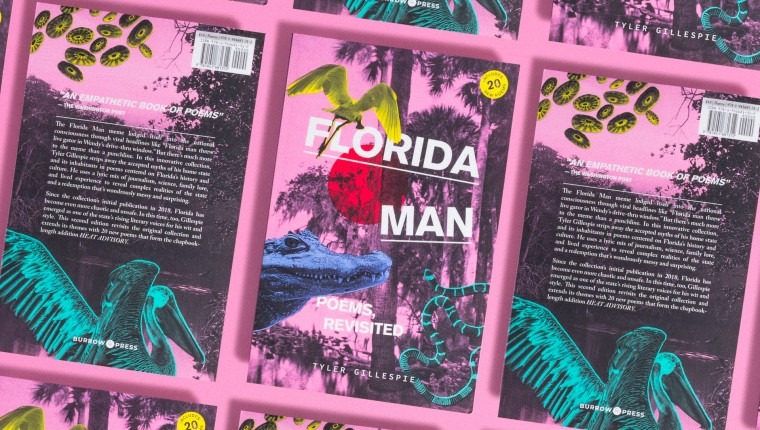March 12 at 7 pm
Free
Tombolo Books, St Pete
Details here
In 2018, I published Florida Man: Poems, and this month the Orlando-based Burrow Press is releasing a new and extended edition.
In Florida Man: Poems, Revisited, I reconsider the original work and bring the work’s themes – on Florida’s history, culture and environment – into the current moment with 20 additional poems that include collage, archival newspaper clips and sound poetry (readers can access these poems through QR codes – you can listen to the sounds of alligator mating season at Big Cypress here).
To celebrate, Tombolo Books is hosting the launch event on March 12 at 7 pm with special guests Chad Mize and Gloria Muñoz.
Recently, a professor invited me to speak to students in a Florida literature class, in part, about my forthcoming collection I chatted with the class about the book as well as Florida’s overlooked literary history, writing inspiration, and the collection’s eponymous character Florida Man, a meme that went viral for headlines like “Florida Man Arrested for Allegedly Throwing Live Alligator Into Wendy’s Drive-Thru Window.”
A few weeks after my visit, the professor sent me an email with the following note. . .
So, your work really spoke to a lot of my students, and one of them made some small zines based on “A Second Generation Alligator Wrestler” and “Alligator Heart” and distributed them in random places around campus.
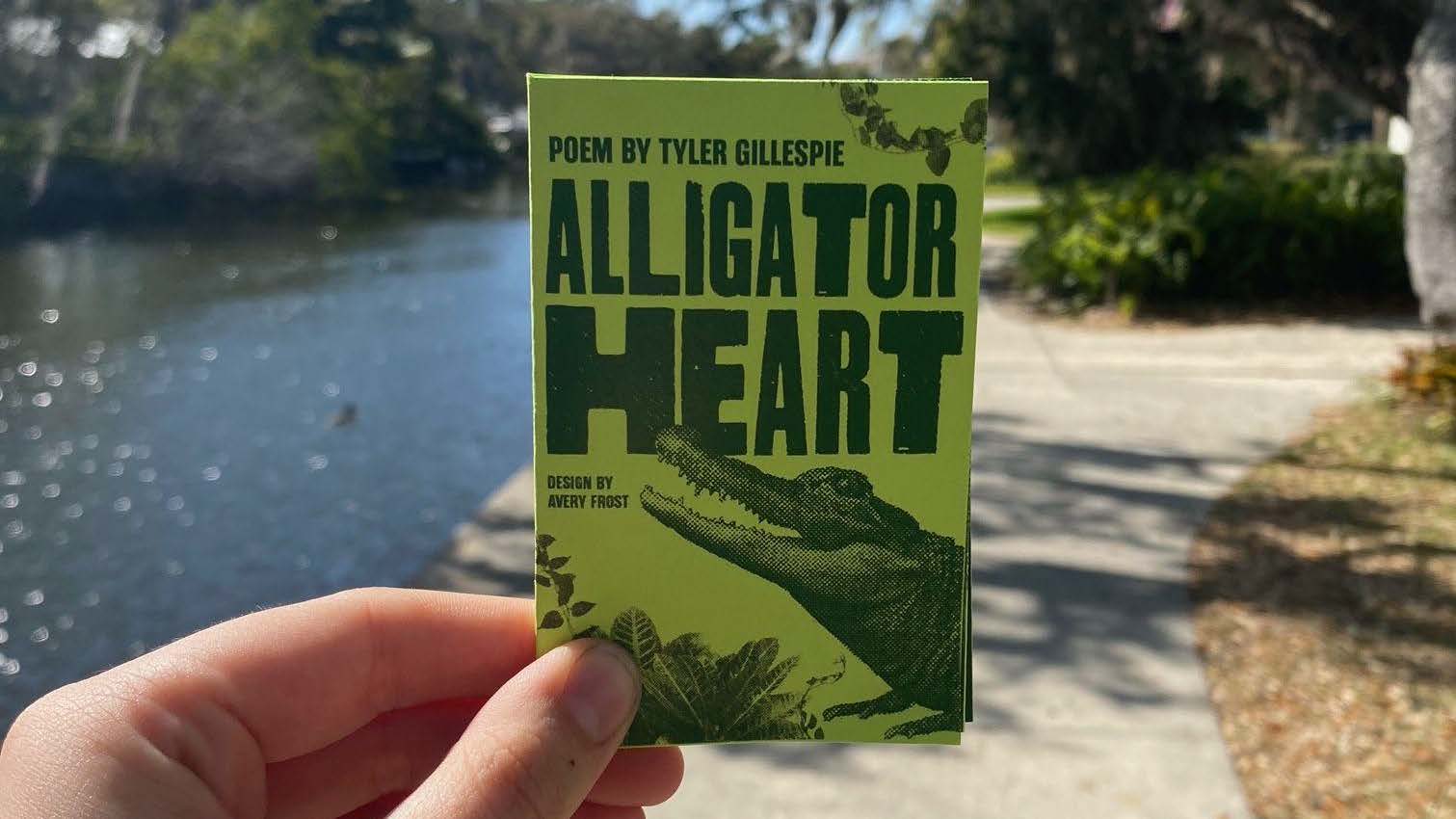
I’m always humbled to get messages like this about engagement with my work. One of the main reasons I write is to have a connection with readers, and it’s exciting to see other writers reinterprete my poems – especially when they’re about alligators, one of my greatest muses.
By my count, there are ten poems in my collection with “alligator” in their titles (and even more mention their cold-blood). And fun fact, all three of my books – two poetry, one nonfiction – feature an alligator, in some way, on their front or back covers.
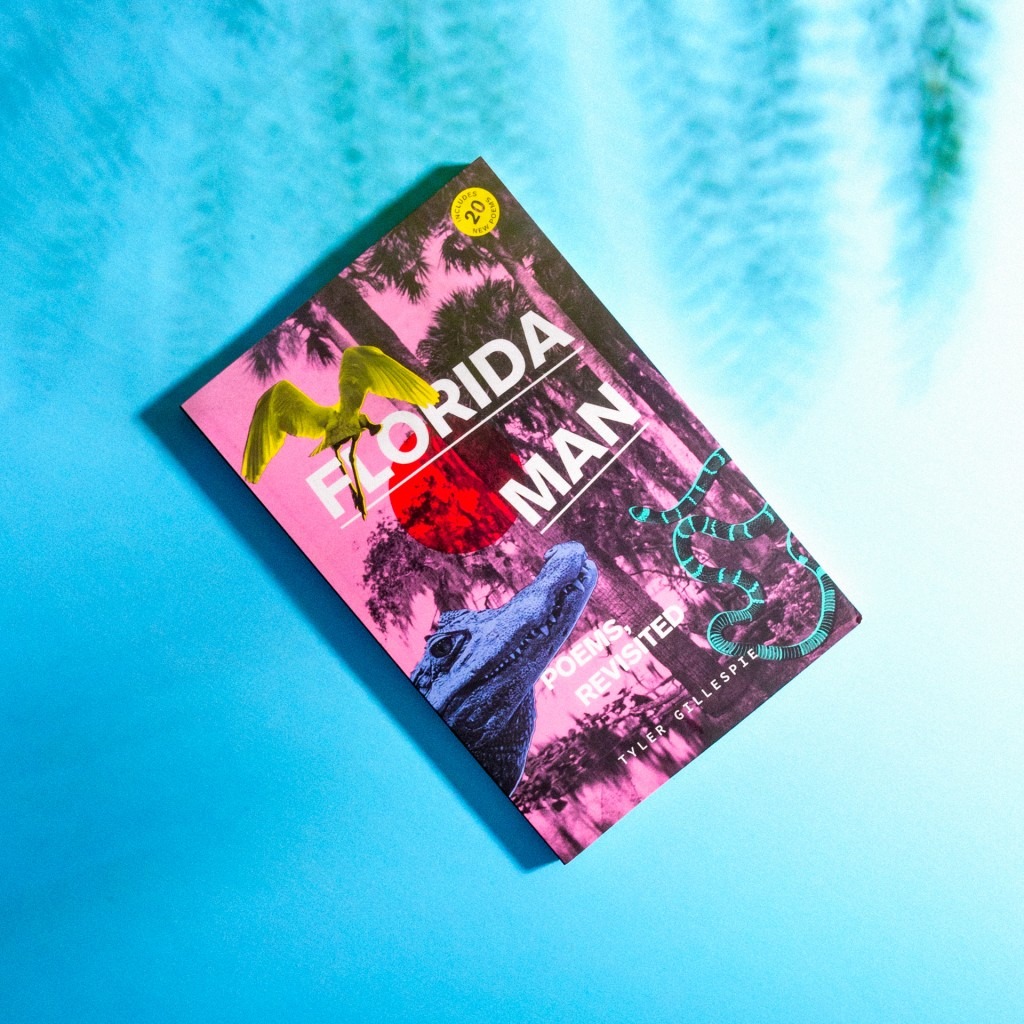
I’ve been fascinated with alligators since at least my teenage years when I exercised in a park near my grandparents’ house. I remember an alligator’s eyes peering above the water. Someone told me it was a big one, like 10-feet long.
I’m not sure if the gator actually was that big, but I still ran a little bit faster nonetheless.
The alligator scared me, but I also felt skinship with the reptiles who have owned the state long before people lived here.
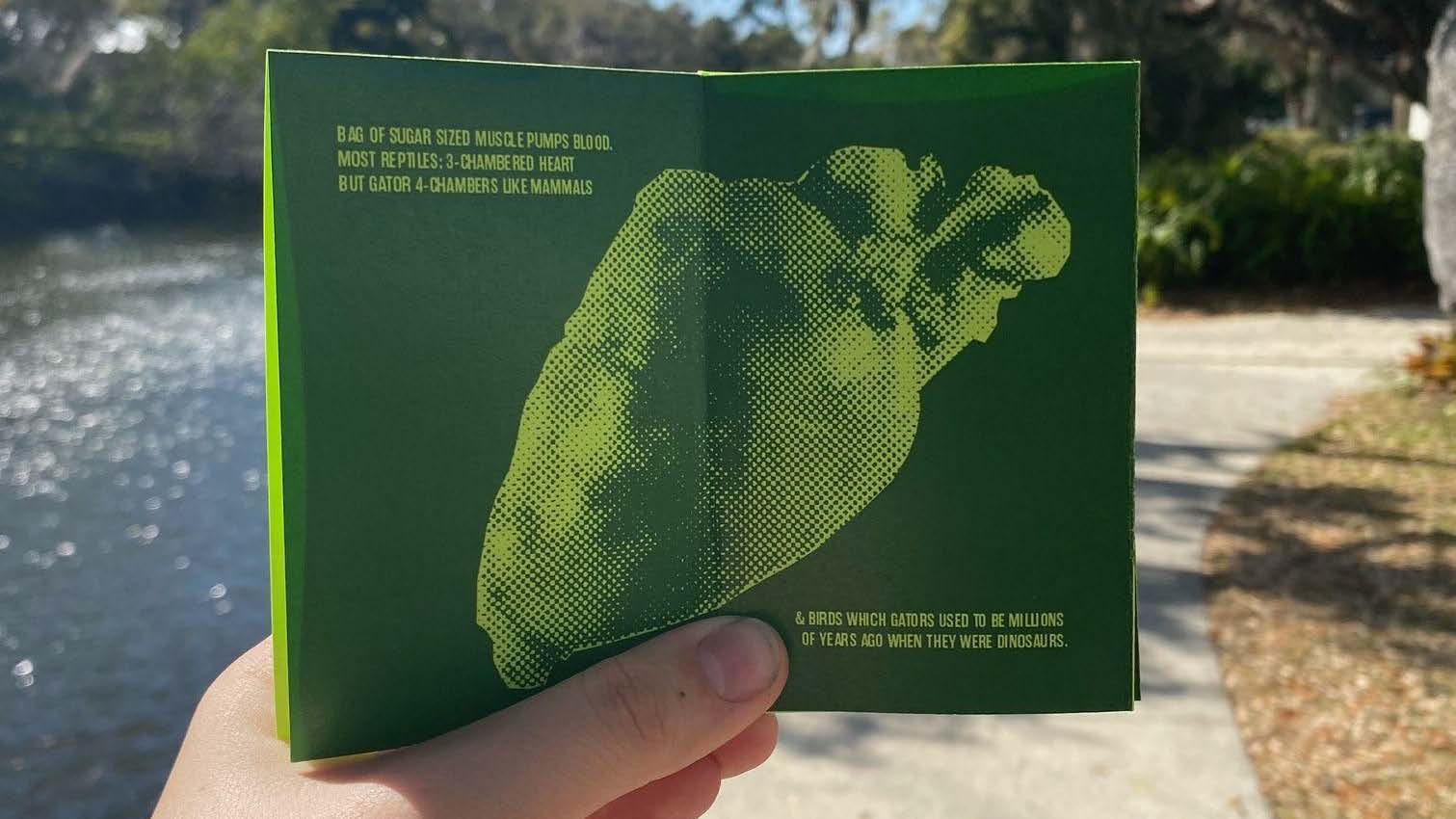
As a journalist, I later wrote about the role of alligators in Florida’s history and economy for outlets like VICE and in my book of essays The Thing about Florida: Exploring a Misunderstood State (University Press of Florida, 2021). For these nonfiction pieces, I talked to alligator wrestlers, scientists, and a woman who kept a pet gator named Rambo.
I worked on those pieces during the same time I wrote Florida Man: Poems – and I saw ways to interweave snippets from those interviews, observations and alligator facts into the poems.
The professor’s student made a zine – a DIY publication – from one of these poems titled “A Second Generation Alligator Wrestler.”
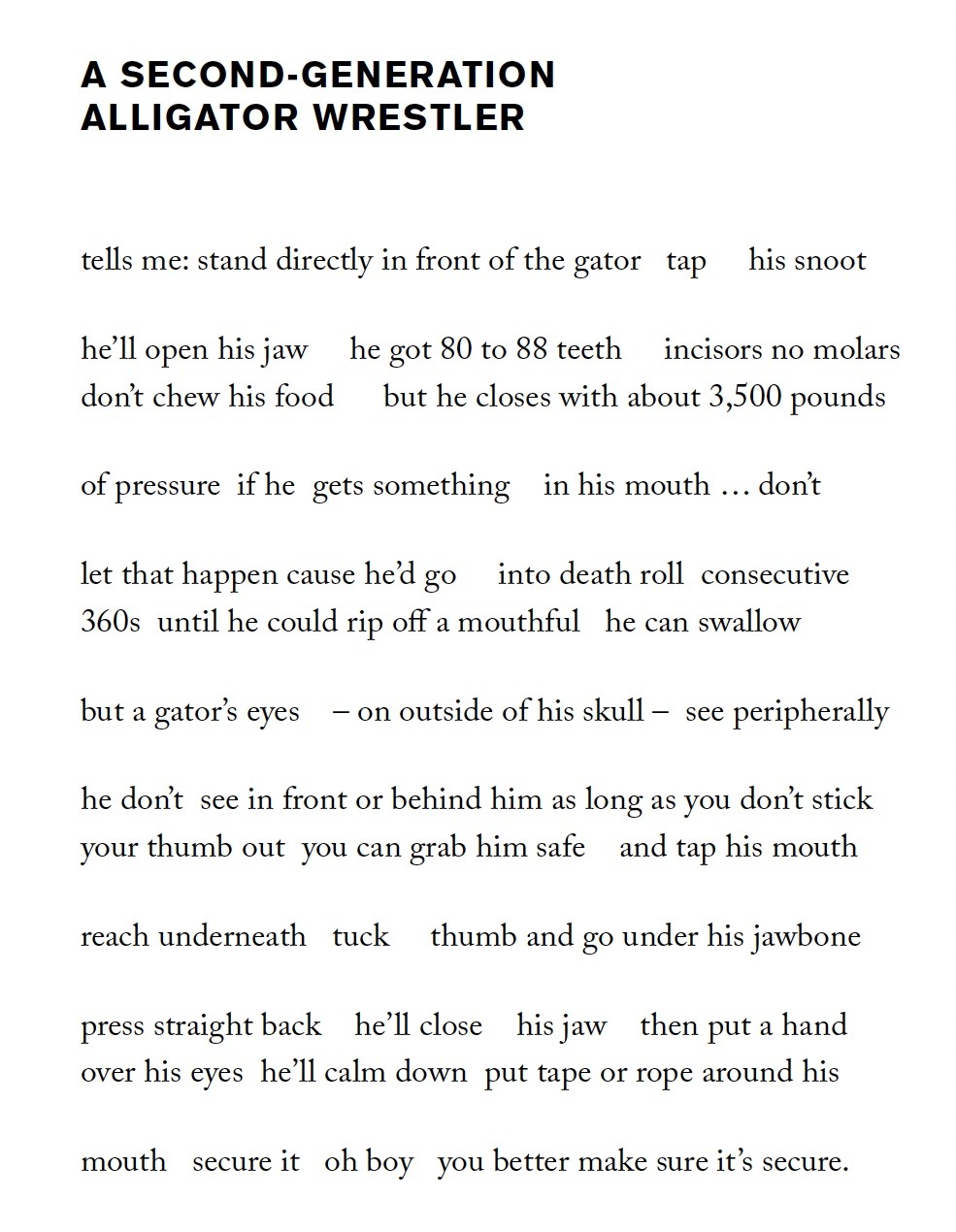
This poem came directly out of an interview with an alligator wrestler. We chatted in the Everglades at his family’s ecotourism business. He’s the second-generation owner of a park that opened as a mom-and-pop roadside and now offers airboat rides and alligator shows.
The gators at his park are rescued nuisance gators. They’ve been trapped in places like people’s pools or residential ponds. They mostly likely would’ve been killed due to Florida’s laws if they didn’t find themselves at the park. These gators are well-fed and protected.
Performers basically tire the gators out when the “wrestle” them. They perform tricks – like tail whips – before they’re fed. There aren’t any headlocks or body slams.
The second-generation alligator wrestler had a knack for telling a story, as many Floridians do. The way he described his “wrestling technique” took on a certain rhythm and tone. His details helped me hear it as a poem.
I added the poem’s beginning phrase “tells me” because I didn’t want this poem to be in persona – a poem written from the viewpoint of the subject (in this case, an alligator wrestler). I wanted readers to know a real person told me this story. I wanted to frame the act of alligator wrestling as a poem itself.
Similarly, I wanted to frame alligators as poetic, like in “Alligator Heart.”
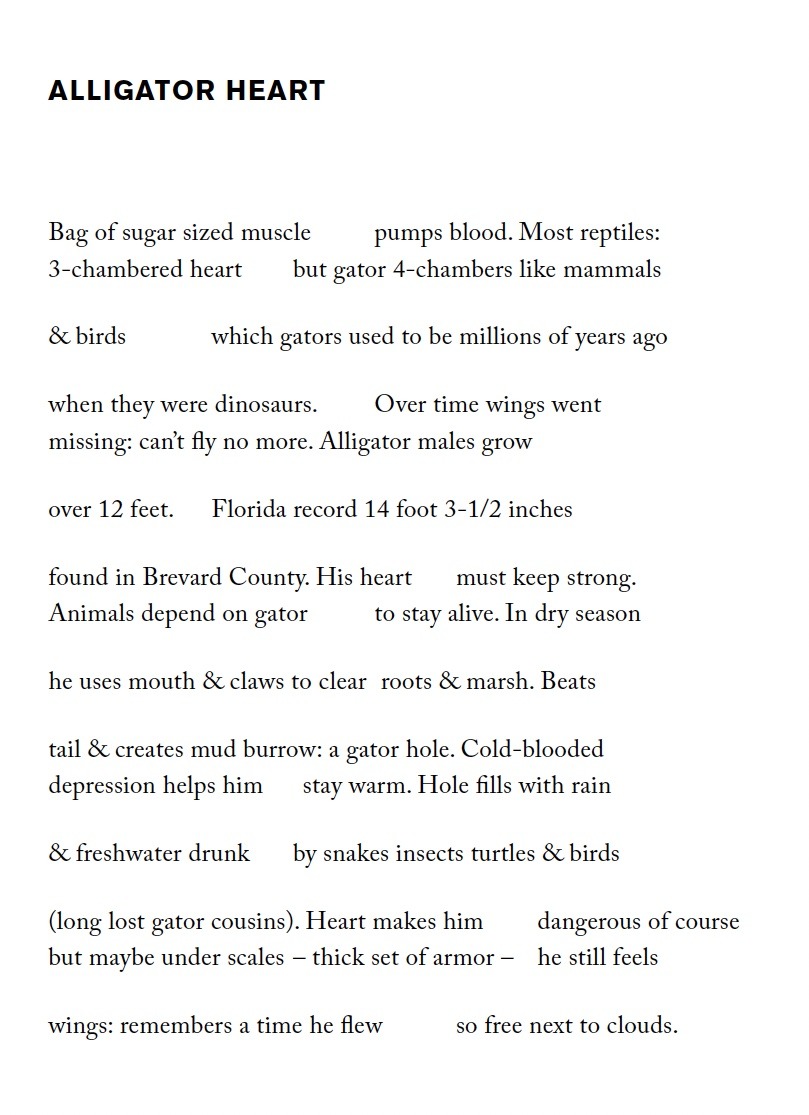
I titled this poem “Alligator Heart” for the literal and figurative opportunities with “heart.” It’s both physical and metaphorical. We often say things like they show a lot of heart when people are strong or courageous.
I wanted to show alligators as courageous. They’ve survived here despite our best efforts. It’s currently a felony in Florida to kill or injure a gator unless authorized by the Fish and Wildlife Conservation Committee.
But it wasn’t always that way. People used to shoot gators here for fun, for sport. They were hunted so much they became endangered in the ’70s. Their population stablized in the ’80s, and agencies estimate there are over a million in the state.
They’re survivors, and, like Florida, misunderstood. People can be scared of them, but they are important to the ecosystem (just like our state).
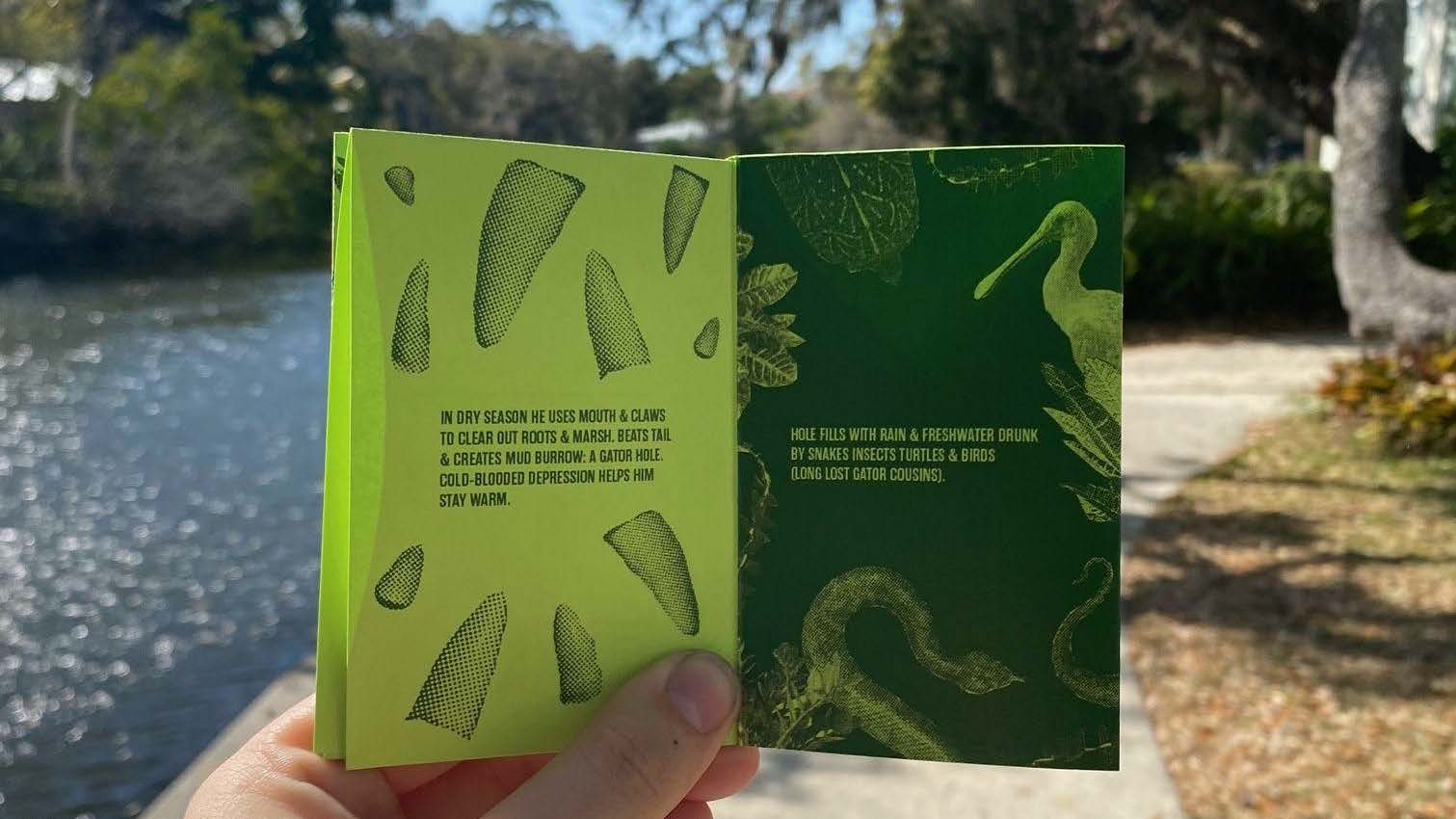
In “Alligator Heart,” I try to show this. The poem begins with a physical description of their hearts and then moves to more abstraction as it traces a version of their history back to dinosaurs, back to the sky.
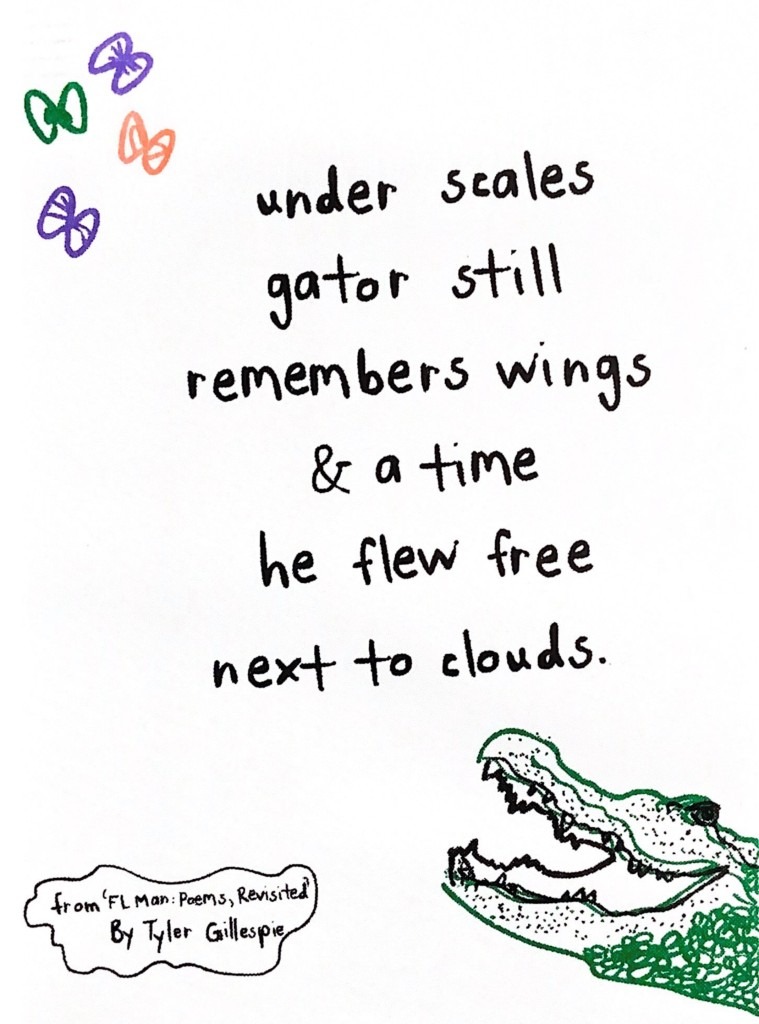
To me, alligators represent our state’s history – its beauty, its complications. They’re fierce creatures, no doubt, but they also play an important role as keystone creatures. They demand we avoid them while asking us to take a closer look.
Alligators – like other animals – allow us to understand our environment from a different vantage point. This can be fertile ground for writers who choose to approach the page at their own risk.
